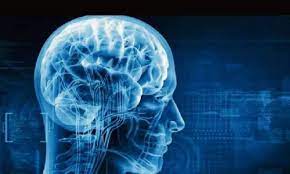How Sleep Deprivation Affects Mood
We’ve all been there – burning the midnight oil and pulling an all-nighter, only to experience that unique “tired and wired” sensation. Despite physical exhaustion, our brains can feel surprisingly upbeat, loopy, and even a bit giddy. Now, neurobiologists at Northwestern University have unraveled the science behind this punch-drunk effect.

In a groundbreaking study, researchers explored the impact of mild, acute sleep deprivation on mice, examining their behavior and brain activity. They discovered that not only did dopamine levels rise during the period of acute sleep loss, but synaptic plasticity also increased, essentially rewiring the brain and sustaining that bubbly mood for several days.
These findings not only shed light on how mood states naturally transition but could also deepen our understanding of the rapid effects of antidepressants like ketamine. Additionally, it might help researchers identify new targets for developing novel antidepressant medications.
Published in the journal Neuron on November 2, this research was conducted with Mingzheng Wu, a postdoctoral fellow at Northwestern, as the first author and Professor Yevgenia Kozorovitskiy as the corresponding author.
The Impact of Acute Sleep Loss
While chronic sleep deprivation has been well-documented for its adverse effects on our health, the effects of brief sleep loss, like staying up all night for an exam, have been less understood. This research unveiled the potent antidepressant effect of sleep loss and its capacity to rewire the brain.
Professor Kozorovitskiy, an expert in neuroplasticity and associate professor of neurobiology at Northwestern’s Weinberg College of Arts and Sciences, emphasized the significance of recognizing how seemingly ordinary activities, such as a sleepless night, can fundamentally alter the brain in just a matter of hours.
Signs of Sleep Loss
Scientists have long recognized that acute disturbances in sleep patterns can lead to altered mental states and behaviors. Patients with changes in sleep and circadian rhythms, for example, may experience manic episodes or, on occasion, reverse depressive episodes.
For lead author Mingzheng Wu and many others, the changes in mood after acute sleep loss feel remarkably real, even in healthy individuals. However, the precise brain mechanisms behind these effects have remained largely unclear.
Cracking the Code with Mice
To explore these mechanisms, Kozorovitskiy and her team conducted an experiment to induce acute sleep loss in mice without a genetic predisposition for mood disorders. Their approach was designed to be gentle enough to avoid causing significant stress to the animals while being uncomfortable enough to keep them awake. After a sleepless night, the mice’s behavior shifted, becoming more aggressive, hyperactive, and hypersexual compared to those who had a typical night’s sleep.
By using optical and genetically encoded tools, the researchers measured the activity of dopamine neurons, which govern the brain’s reward response. They found that during the brief period of sleep loss, dopamine neuron activity was significantly higher.
Pinpointing Brain Regions
The research focused on four brain regions responsible for dopamine release: the prefrontal cortex, nucleus accumbens, hypothalamus, and dorsal striatum. After monitoring these regions for dopamine release following acute sleep loss, they found that three of the four areas (prefrontal cortex, nucleus accumbens, and hypothalamus) were involved in the mood-altering effects.
Understanding how sleep deprivation can lead to these mood transitions offers valuable insights. With further exploration, this research may open doors to novel approaches for managing mood disorders and improving our understanding of how the brain functions under different conditions.